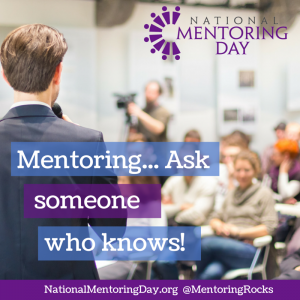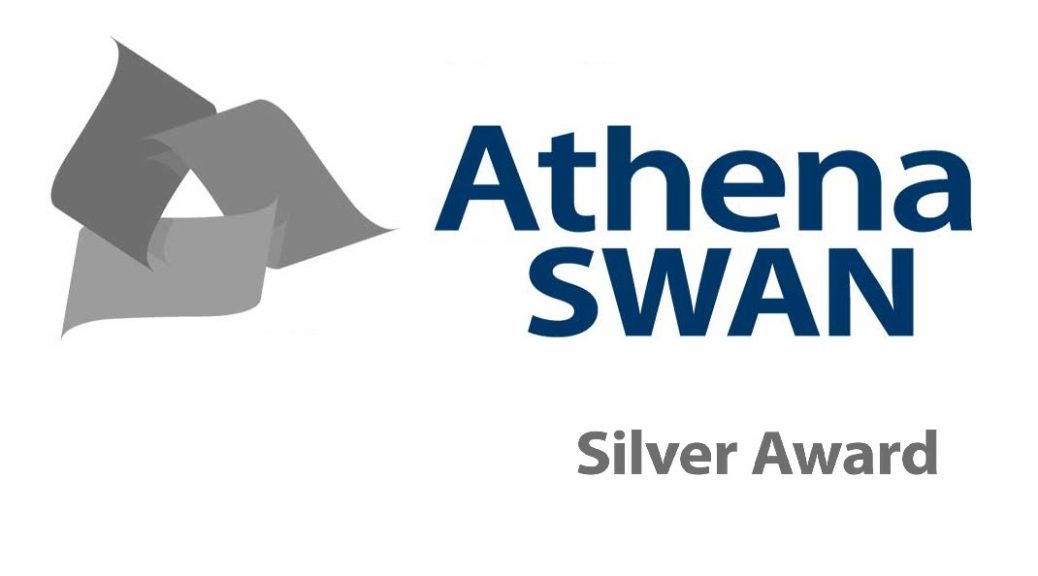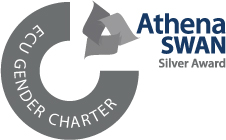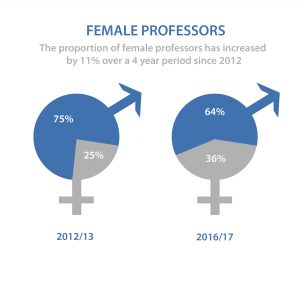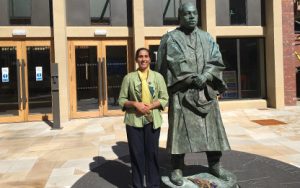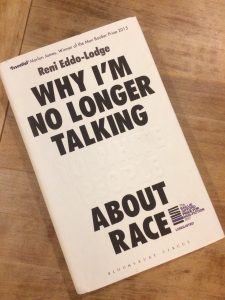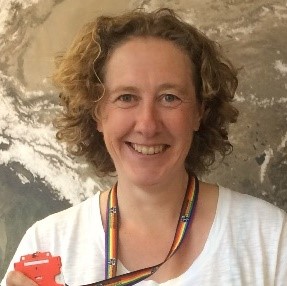 In the first of our Demystifying Leadership Series, which will look at what some of our senior leaders get up to and what they get out of their roles, we talk to Prof Candy Rowe, our Director of Equality, Diversity and Inclusion (EDI) for the Faculty. As she steps down from being Director and the Faculty looks for a replacement, we ask what being Director of EDI was like, what she got out of leading on EDI for the Faculty, and why she would recommend it as a leadership opportunity.
In the first of our Demystifying Leadership Series, which will look at what some of our senior leaders get up to and what they get out of their roles, we talk to Prof Candy Rowe, our Director of Equality, Diversity and Inclusion (EDI) for the Faculty. As she steps down from being Director and the Faculty looks for a replacement, we ask what being Director of EDI was like, what she got out of leading on EDI for the Faculty, and why she would recommend it as a leadership opportunity.
Why did you apply to be Director of EDI for the Faculty?
I’d actually told myself that I definitely wouldn’t apply! I had been the academic lead for the successful Institute of Neuroscience Athena SWAN Silver Award, and also chaired the NU Women staff network. These roles took time, and I felt that I should perhaps be concentrating on my research profile to further my career. But in the end, the opportunity seemed too good to ignore. What changed my mind? I wanted a role where I could lead positive change for people, and have the opportunity to do so at a larger scale than I had before.
What does an average day look like for you?
I’m sure you’ll talk to anyone in a leadership role – there is no ‘average day’. What have I done today? I’ve chaired the Faculty EDI Committee, and for the first time had the EDI Leads from NU Med, our Malaysian campus, joining us via teleconference.
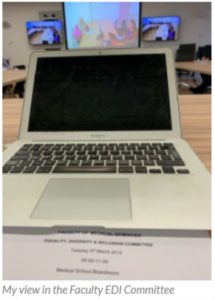 We also heard more about race equality from Vijaya Kotur (the University’s Race Equality Officer) and discussed how we could embed EDI more into some of the changes within the Faculty. I then had a catch-up with the fab Faculty EDI team, Ann Armstrong and Malasree Home, just to discuss challenges, clarify and prioritise workload and exchange ideas. I went straight into another meeting about a project being led in the Faculty by one of our Postgraduate team, Karolien Jordens, on experiences of international students here at Newcastle, and how we can improve the support we offer to our postgraduates. Following lunch, I met with colleagues from our Dental School who have won some funding for a project to diversify their student reps. This sounds like a great project, and I always enjoy chatting to people who have identified an EDI issue in their school or institute and are taking steps to address it. I always try to help if I can. In between all this, I’ve been progressing a host of other things – setting up a phone call with an EDI lead at another university to discuss Athena SWAN, helping finalise our International Women’s Day event on Friday, discussing the promotion of a new peer mentoring network for student parents, and tweeting the VC. And now it’s 3pm, and I’m writing this before I need to go and pick up my son at 4pm so he can get his homework done before he goes to a club!
We also heard more about race equality from Vijaya Kotur (the University’s Race Equality Officer) and discussed how we could embed EDI more into some of the changes within the Faculty. I then had a catch-up with the fab Faculty EDI team, Ann Armstrong and Malasree Home, just to discuss challenges, clarify and prioritise workload and exchange ideas. I went straight into another meeting about a project being led in the Faculty by one of our Postgraduate team, Karolien Jordens, on experiences of international students here at Newcastle, and how we can improve the support we offer to our postgraduates. Following lunch, I met with colleagues from our Dental School who have won some funding for a project to diversify their student reps. This sounds like a great project, and I always enjoy chatting to people who have identified an EDI issue in their school or institute and are taking steps to address it. I always try to help if I can. In between all this, I’ve been progressing a host of other things – setting up a phone call with an EDI lead at another university to discuss Athena SWAN, helping finalise our International Women’s Day event on Friday, discussing the promotion of a new peer mentoring network for student parents, and tweeting the VC. And now it’s 3pm, and I’m writing this before I need to go and pick up my son at 4pm so he can get his homework done before he goes to a club!
What do you get out of being Director of EDI?
The capacity to change things for the better by empowering people and changing policies and practices that support people and the institution. I enjoy having a broad view of the Faculty and the Institution, which many people at my level don’t have. Working with diverse people, and building teams to deliver change – I love it that I can’t walk across campus without seeing someone I know and stopping for a catch-up.
What has been your biggest achievement?
There is no doubt that bringing everyone together to get our first Faculty Athena SWAN Award has been mine and the team’s biggest achievement. But I am also proud of other things I’ve done and been involved with. Most recently, I enjoyed working with LGBT+ reps and other colleagues to buy and raise the rainbow flag on campus for the first time, and seeing the positive impact of that. I think staff are becoming more aware of the importance of EDI: we’ve been working hard on our comms, including our blog and new Equality Matters email circular, as well as our EDI Week and Bitesize events – a lot of people have given ideas and time to make these work. And of course, all the work we did surveying the experiences of staff and student parents, and getting the institutional commitment through the ‘For Families’ project to make Newcastle University more family friendly by 2020. It’s an exciting time to be an EDI lead.
Who do you talk to about challenges or when the going feels tough?
Oh, all sorts of people – depends on the challenge! Like any job, it has its ups and downs, its successes and frustrations. David Burn, the PVC, is often someone who I turn to for support on advancing key issues for the Faculty – he’s always supportive, especially in times of need. But I also have a network of academic colleagues to talk about more personal career challenges, and a fantastic EDI team, both here in the Faculty and across the institution. I found a lot of people to be very supportive and offer me help and advice when I need it.
What have you learned through this role?
Lots. As I move into a new university-wide role, I can see that having been involved in strategic planning and delivery of projects makes a difference to my confidence in taking on a new position. For the first time, a leadership role feels quite do-able (maybe I’m not stretching myself enough!). I’ve learned a huge amount from the professional staff I’ve worked with, including the value of visualising processes, managing projects, and delivering change. I’ve also learned how to work strategically on decision-making committees, and the value of my own contributions to discussions and decisions. I’ve learned that I enjoy leadership roles, especially those that are new and that give ample opportunity to build something from scratch. And reading this, maybe I am starting to overcome my Imposter Syndrome too…
Have you enjoyed it – would you recommend it as a leadership role?
Definitely – I’ve met some brilliant people in this role, and been lucky to work with some great staff and students on EDI projects. It has been a lot of fun, and in fact, I’m going to miss the team I work with, and the opportunities to improve working cultures in the Faculty. Having said that, I’m not abandoning EDI entirely, I will still be leading on EDI issues in my new role as NUAcT Director, and remain co-Chair of the For Families project. If you’re thinking that this sounds like a fun job and one you’d be interested in doing, I’d definitely go for it. You’ll learn a lot about how the Faculty and Institution works, and your own abilities – you’ll be empowering yourself as well as the people around you.
The job description and details of how to apply have been sent to academic staff in the Faculty. If you think you would like to apply, please send a CV and covering letter to Marian Phillipson by 18th March 2019. Informal enquiries can be made directly to Prof David Burn, Pro-Vice Chancellor of FMS.

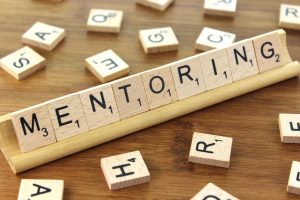 We’re encouraging everyone in the Faculty to
We’re encouraging everyone in the Faculty to 